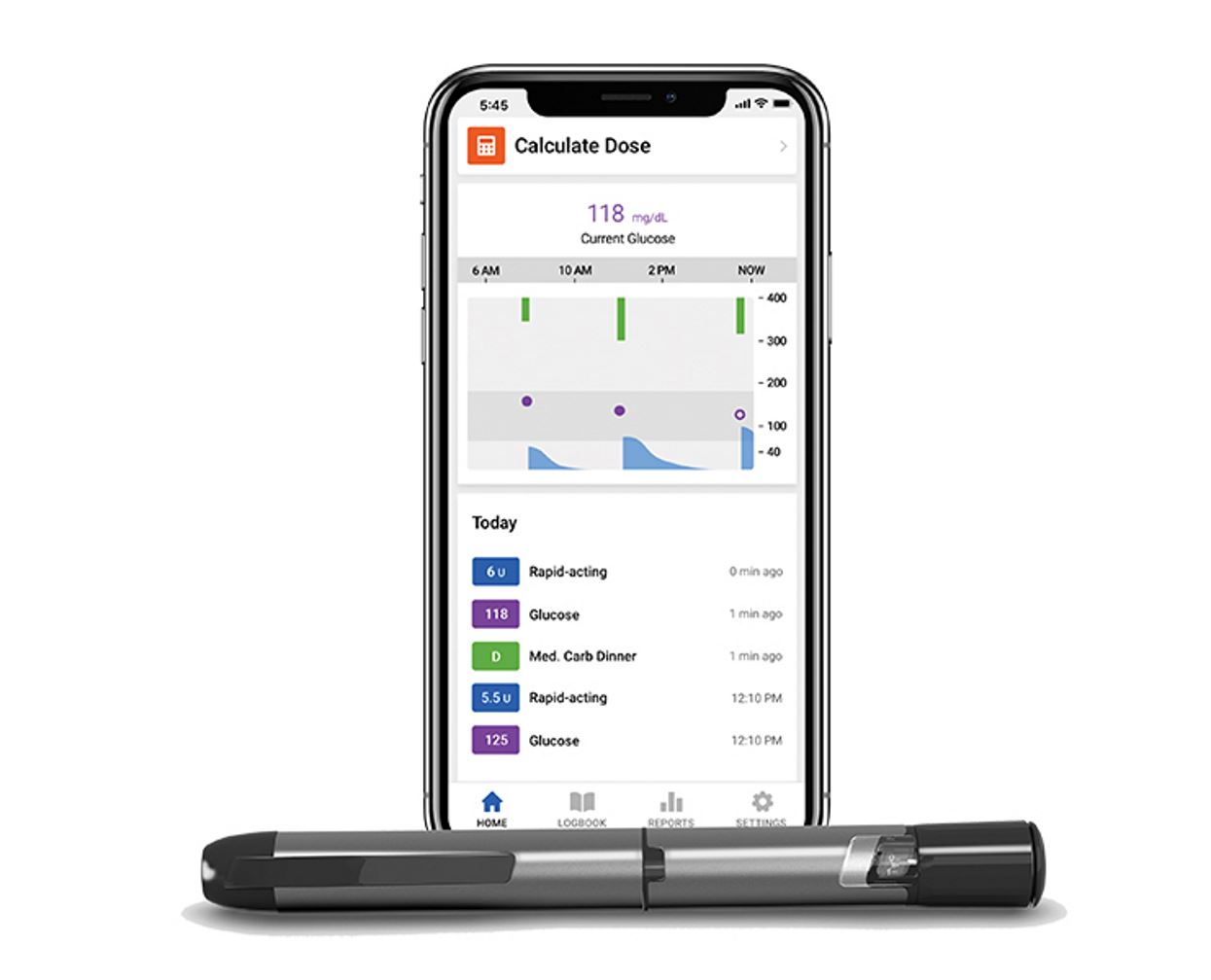
MCPHS Experts Hail a New Era in Diabetes Management

Smart technology can help you choose a restaurant for dinner or track your steps as you train for a marathon. It can also remember which episode of “Law and Order” you got to during your last marathon—or remind you that you might be watching too much “Law and Order”. But did you know that smart technology can help you manage the levels of insulin within your body? MCPHS experts Nikhil Sangave, Assistant Professor; Timothy Aungst, PharmD, Associate Professor; and Dhiren Patel, PharmD, CDE, BC-ADM, BCACP, Adjunct Associate Professor of Pharmacy Practice recently set out to discover what was new in the world of high-tech diabetes management. As they explain in their recent paper, “Smart Connected Insulin Pens, Caps, and Attachments: A Review of the Future of Diabetes Technology”, published in the November ‘19 issue of Diabetes Spectrum, the news is good.
If the last time you thought about diabetes, you imagined vials of clear insulin and being stuck with syringes, you’re in for a surprise: the newest tools for diabetes management are sleek, highly designed “pens” that, as their names suggest, look more like high-quality rollerballs than medical devices. And, as Aungst, Sangave, and Patel discovered on their dive into the emerging technology market, the new, second-generation pens can do much more than just deliver insulin.
“As the population with diabetes grows internationally, second-generation insulin pens have been engineered with USB or Bluetooth features to enable closer monitoring of pharmacotherapy,” they write. “Similarly, many devices for self-monitoring of blood glucose have also become integrated with Bluetooth to enable wireless transmission of data to a smartphone.” So not only can the pens monitor your blood sugar and insulin dosage, but they can link up with the endlessly updating world of apps in your smartphone, enabling a wide range of monitoring activities.
For example, some models of pen can sense and report if the insulin inside has been exposed to extreme temperatures, help make dosage calculations, and administer and track even very small fractional dosages. All these features help patients to carefully manage their condition using less insulin—no small consideration, as prices for the life-saving substance continue to rise.
Aungst and Sangave believe there's still a ways to go, however. Aungst compares the current state of smart insulin pens, and how they work with other devices and human action, to those old Garmin navigation devices people would put in their cars. They're a huge advancement, but just one step along the way. Eventually cars had their own navigation systems built in, and we're now moving self-driving cars. He thinks the big game-changer for digital health and diabetes will be similar: an all-in-one system that combines data collection and automated treatment. It will be important, Sangave adds, for pharmacists and other providers to educate themselves on the latest and most effective options for patients.
As the technology driving medical advancement continues to evolve, the faculty experts at MCPHS will continue to drive the national conversation about patient-centered care, helping guide the next generation of care providers to make thoughtful decisions with up-to-the-minute data.
Interested in pursuing a career in pharmacy? Learn more about PharmD at MCPHS.
More University News
MCPHS 2025: A Year in Photos
Our photos from 2025 show connection, community, and celebration.
‘Purpose and Passion’: MCPHS Manchester Students Showcase Research
From pharmacy deserts to Gen Z learning strategies, student researchers explored timely issues shaping the future of healthcare.
Lessons in Fear: A Halloween Horror Film Guide for Healthcare Students
MCPHS film professor Mikal Gaines picks five films that turn fright into insight, showing how contagion, grief, and ethical dilemmas play out on screen—and in real life.
Two Minds, One Mission: Bridging Psychology and Medicine
MCPHS researchers explore how mental wellness impacts physical health.

